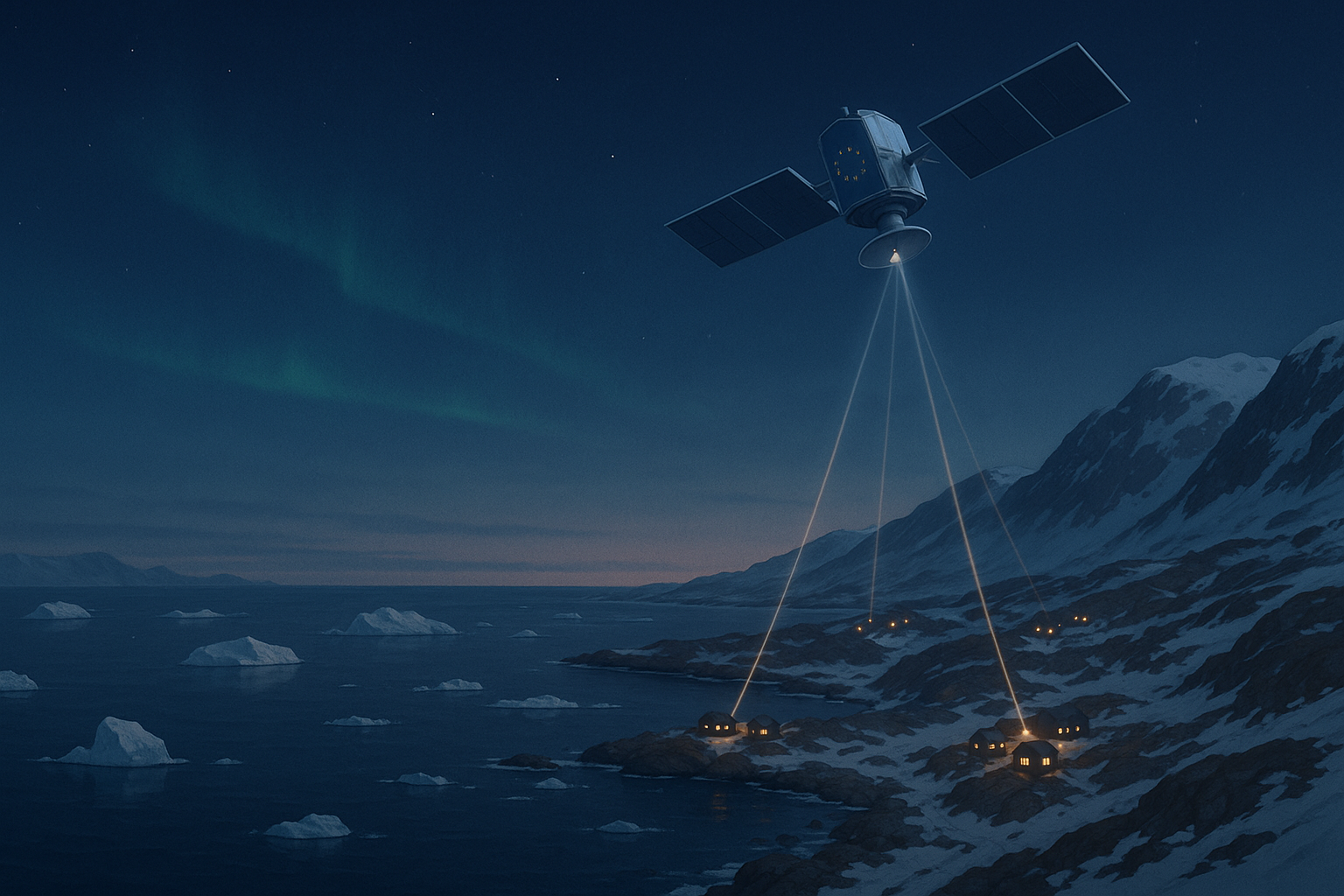Greenland has just made a quiet move in the great space chess game—and it wasn't in America's favor.
The vast Arctic territory's state telecom provider, Tusass, inked a multi-year deal with European satellite operator Eutelsat to provide vital connectivity across its ice-dominated landscape. On paper, it's just another business arrangement. Dig a little deeper, though, and you'll find something more interesting brewing.
What struck me immediately wasn't what was in the announcement, but what wasn't: Starlink. Elon Musk's satellite constellation has been gobbling up contracts in remote regions worldwide, yet Greenland opted for the European alternative.
"This partnership ensures reliable connectivity for all Greenlanders," read the carefully worded press release. (They always sound so clinical, don't they?)
Look, when your country is 836,000 square miles of mostly uninhabited terrain, satellites aren't a luxury—they're essential infrastructure. Traditional telecom solutions simply can't cut it when settlements are scattered across a coastline with more ice than people.
I've been following satellite politics since 2018, and there's a pattern emerging. Countries increasingly view their connectivity choices through a sovereignty lens rather than just technical specifications. It's what I'd call "communications nationalism" in action.
The timing is... interesting.
Eutelsat recently merged with OneWeb, creating what many industry observers (myself included) see as Europe's champion to counter American dominance in orbital communications. This wasn't just corporate consolidation—it was strategic positioning.
"European nations have been frustrated with aspects of U.S. tech dominance for years," explained Dr. Margot Diehl, a space policy researcher I spoke with last month. "The satellite sector is just the latest battlefield."
Remember Galileo? Europe spent billions developing its own satellite navigation system rather than relying on America's GPS. At the time, they cited "technical redundancy" as the reason, but everyone knew the real motivation: strategic autonomy.
This Greenland deal fits the same pattern.
Of course, there could be perfectly boring explanations. Maybe Eutelsat simply offered better terms. Maybe their technical solution was better suited for Arctic conditions (those LEO satellites perform differently in polar regions, after all).
But the broader context suggests more.
Greenland, despite its autonomous status within the Kingdom of Denmark, remains connected to European political orbits. When a state-owned telecom makes infrastructure choices, they're rarely just business decisions.
For investors watching this space—pun absolutely intended—these geopolitical considerations matter. The economics of satellite constellations depend on scale. If the market fragments along political lines, the entire business model gets... complicated.
I witnessed a similar dynamic at last year's International Telecommunication Union conference in Geneva, where delegates from different regions huddled in separate groups, quietly discussing "trusted vendor" frameworks. The universal internet is becoming less universal by the day.
So what does Tusass get from this arrangement? Reliable connectivity across vast distances, certainly. What does Eutelsat gain? Another customer for their expensive LEO constellation.
And what does the rest of the world learn? That even in space—perhaps especially in space—the flags we plant matter.
The stars may be neutral, but the satellites circling beneath them increasingly are not.
